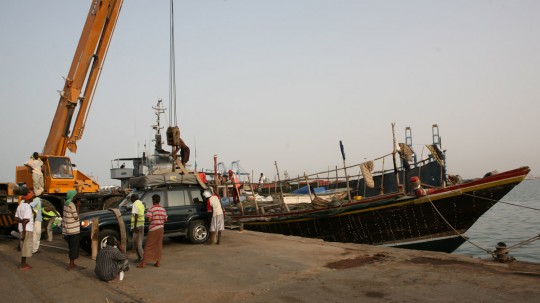
I waited many days in Djibouti for my boat to depart. Everyday, I go to the port, and they tell me to come back the following day. First they can’t unload because of customs issues, then the captain is marrying is son and needs to buy some present.
Finally, on Wednesday July 8th, I show up at the port at 9 a.m., in order to load the truck. It’s a mess there, and nobody knows what they are doing. Everything in Djibouti works with bribes, and you can hardly get anything done without giving right and left. My last expense is at 10 p.m. the same day, when I have to give 70 dollars to borrow the right equipment to put the truck on the boat, as all the attempts with the available tools had failed. The guys damaged the truck as well, but it is just cosmetic, and nothing vital is altered. I could not believe the size of the boat when I saw it. It looked pretty small to cross the Red Sea. Dave, who comes at night to the port to say good-bye, is also surprised, and I can see in his eyes he thinks it may be the last time he see me.
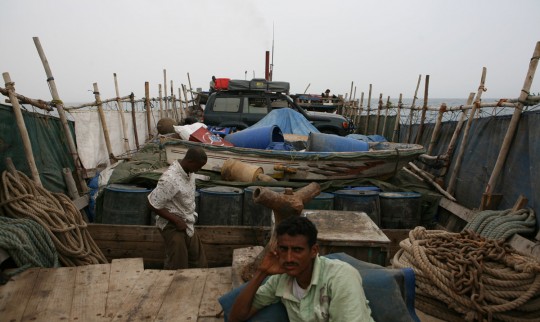
At 11 p.m., we leave the port for a trip that will last for 17 hours. The boat is very slow and the weather hot, as usual. The Yemenite staff on board cooks food once in a while. I sleep in my car and the sea is a little bit agitated.
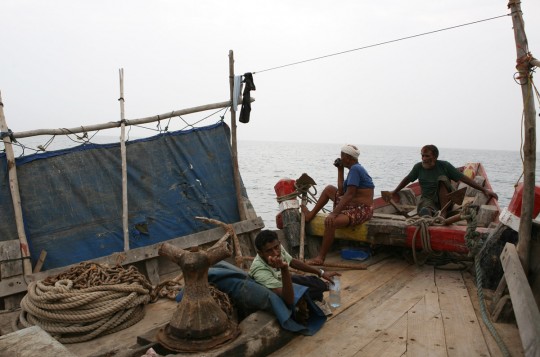
Night is already here when we arrive in Yemen. It is anyway Friday, day off in Muslim countries, so there’s no hope to get anything done. In the port I meet the chief engineer of a big Syrian boat. He invites me for diner, and I am able to take a shower in his vessel.
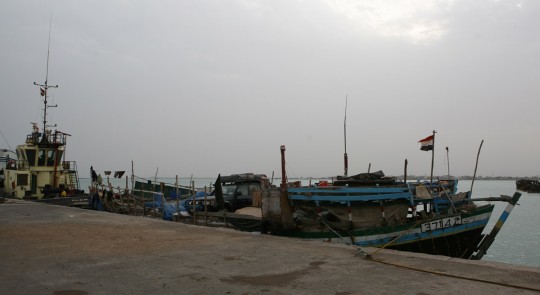
I sleep on the roof of my car, and wake up when the sun rise. It is slightly colder here, in the Mokha port, than in Djibouti. I am invited for breakfast with sailors on the dock, and then, have breakfast on my boat. I spend the morning looking for the right crane attachment to lower my truck on the port, but can’t find it, and finally, my Syrian friend helps me build a bridge from the boat to the wharf, so I can drive out. Scary moment. The wood cries, but I am able to go out without damage. By safety, we also had a cord between my truck and another Land Cruiser, so he could help to drag me out in case of problem. As always, I have to distribute few dollars to the guys all around who helped transport the construction wood.
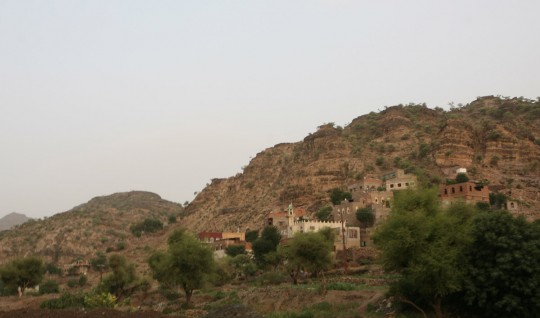
Later, I have lunch on the Syrian boat, then lunch at the customs office. Yemen is like that, you are constantly invited to eat, or have tea.
It takes me many hours to finish the paperwork, and I am finally out of the port by 5 p.m.
If anyone wants to attempt such crossing, there are some details at the end of this post.
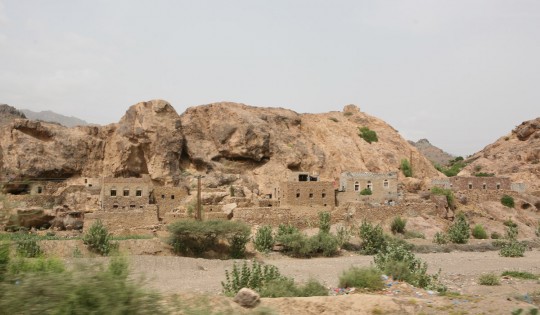
As soon as I am out, I drive to Taizz, in the mountains. There, I hope to get temperatures more suited for humans. It seems that in Yemen camping is not well seen. And since it is my birthday, I decide to go to the hotel. It is clean here, and it cost me US$17 to spend the night. I take an elevator for the first time since South Africa to get to my room. Later I have kidney and eggs, a Yemenite fixture, with a Yemenite guy I met at the hotel. The road is pretty good, and I see beautiful houses that are here since hundred of years, a big difference with Africa.
In the morning, I begin to drive to Aden, 160 km (100 miles) from Taizz. There I go to the Oman consulate to make sure I will be able to enter by road from Yemen. They are very nice, and warn me of danger on the road going there. I promise I will be careful, and in the afternoon I begin to look for a hotel in the city.
The next few days, I will be driving the small road following the south coast of the country, until I enter Oman. In front of me, there are few thousand kilometers of very hot travel.
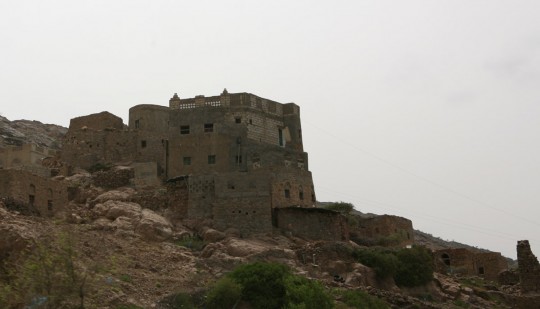
[NOTE FOR TRAVELERS]
To ship my vehicle to Mokha, I had to pay:
– Transport: US$380 (Including one passenger)
– Crane and operator, plus agent in Djibouti: US$200
– Bribe to get the right attachment in the middle of the night: US$75
– Agent in Mokha: US$20
– Helper in Mokha to build bridge: US$20
– Permit to exit port: US$14
Total: US$709
Phone number of Djibouti agent: 870 274
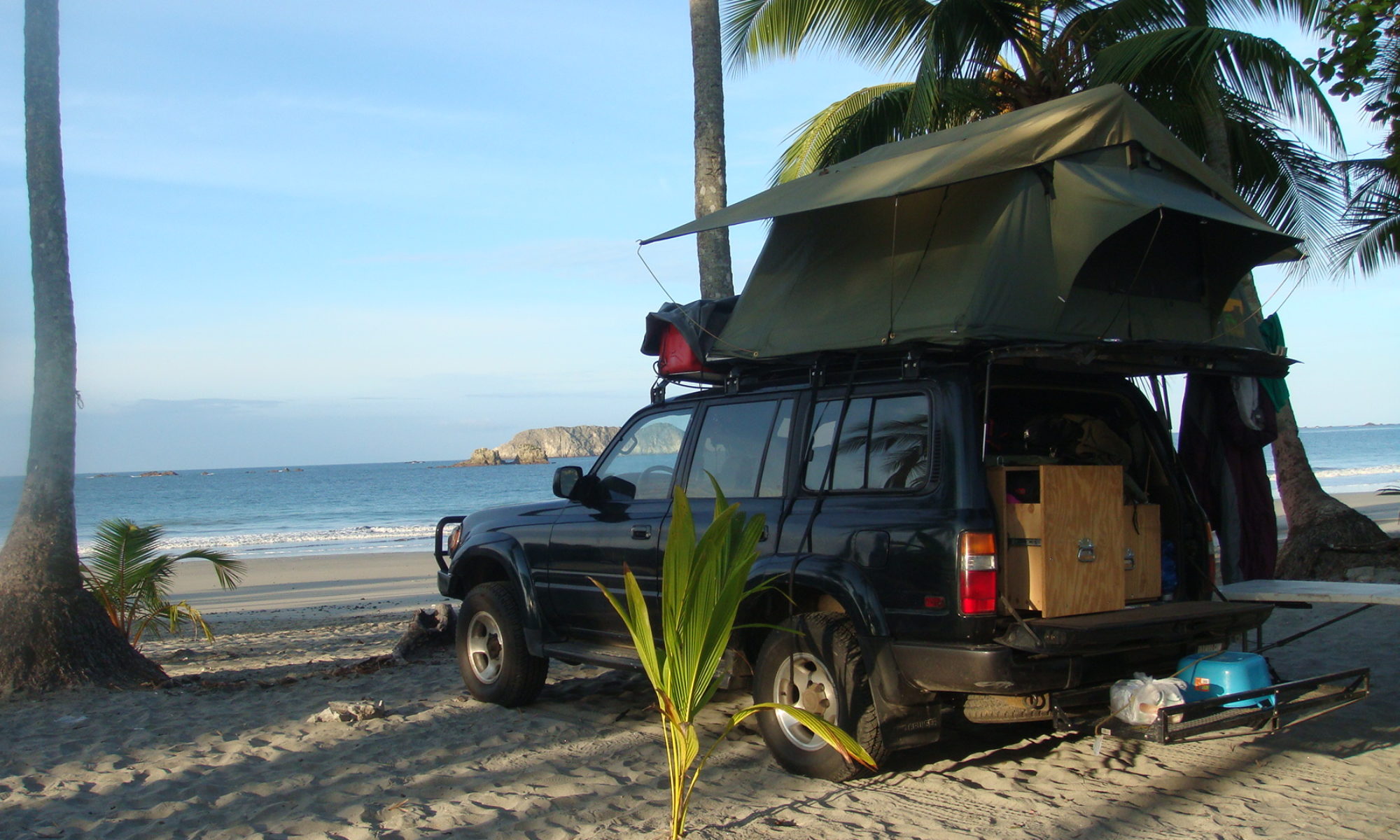
I’m glad you didn’t tell us about this boat until after you used it. It would have been a nail-biter for some of us.